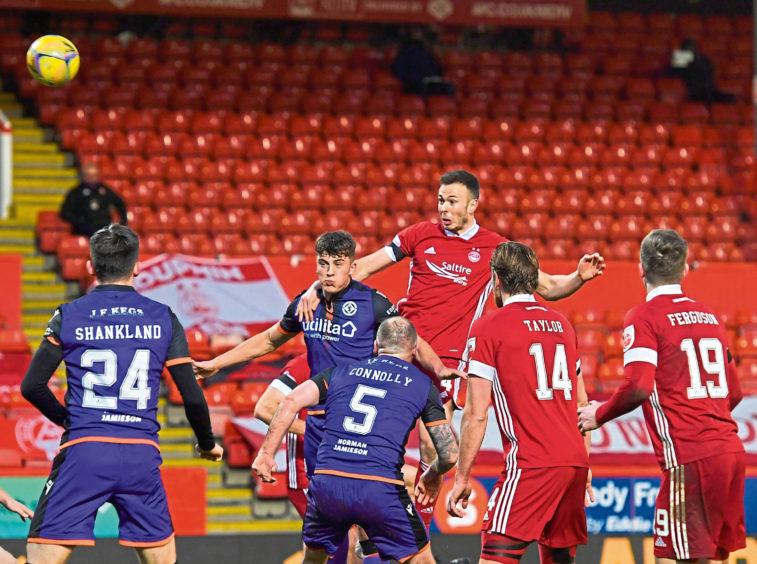Every football fan knows those different roars that punctuate a match.
The angry protests that meet a dangerous challenge. The screams for a penalty after a mistimed tackle by a hapless defender. The hoots of derision when a centre-half shanks a long pass into the stands.
A last-minute winner against superior opposition is louder and wilder than the cheers for an early opener against the team bottom of the league.
My favourite noise is the ripple of excitement that permeates through a crowd as the home side surges into the final third knowing a goal is only one well-executed pass and finish away.
I love those murmurs of anticipation when the possibility of a goal being scored in the next few seconds arrives and the crowd collectively moves from the edge of their seats to standing in hope and expectation.
The roar I will never forget was at Hampden three-and-a-half years ago when Leigh Griffiths curled home his second free kick against England.
The striker’s first set-piece was met with sheer jubilation from the Tartan Army, but the noise after the second free-kick was deafening and unlike anything I had heard at a football ground. The stunned silence that met England’s late equaliser also remains etched in my memory.
But, as we enter 2021, I wonder how long it will be before we have crowds of substantial enough numbers to generate those great sounds and produce the atmosphere that brings a football match to life.
Hopefully that will be sooner rather than later, but all will depend on the successful roll-out of the Covid-19 vaccine.
I’m writing this column at Pittodrie as I wait for Aberdeen’s league match against Dundee United to kick-off. I have made a habit of arriving at grounds ridiculously early before games as I have always enjoyed watching a stadium fill up as kick-off nears.
Sadly, that doesn’t happen anymore.
It is a privilege to be able to attend football matches just now, but it remains surreal to see huge games such as Saturday’s New Firm derby or this weekend’s match between Rangers and Aberdeen played without a crowd.
In the first couple of months of lockdown, I firmly believed that absence would make the heart grow fonder and being deprived of their Saturday afternoon fix would prompt fans to rush back to the terraces in their droves when football eventually returned.
I had visions of grown men crying in the stands when they were finally let back into their beloved stadium and major increases in attendances across the country.
But the longer football continues without fans, the more I fear the opposite will be the case. My friends who go to games regularly are finding new ways to occupy their Saturday afternoons and I’m not convinced they will be queuing up to buy season tickets when the turnstiles reopen.
Others may come to the conclusion that football is an expense they can no longer afford.
I sincerely hope I’m wrong and we witness a huge demand from football fans when the pandemic is over, but I have my doubts.
Football clubs must do everything they can to welcome back fans when they are granted permission.
Scottish football is far more dependent on its supporters than other European countries and clubs, who may have taken this loyalty for granted in the past, are unlikely to make the same mistake in the future.

